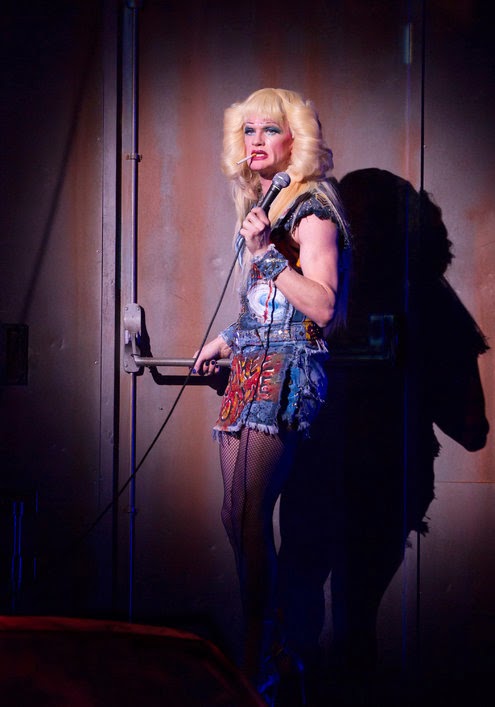 Well, actually...for the delicious chill of autumn and winter, and for the supreme sorrow and joy of the year's turning at Yule (see "Yule Blood"), it's her favorite time of year.
Well, actually...for the delicious chill of autumn and winter, and for the supreme sorrow and joy of the year's turning at Yule (see "Yule Blood"), it's her favorite time of year.But, from the beginning of November on, whenever she shops or stops into Tenbucks for coffee, she has to listen to THAT music.
 Ugh! Bad enough when it's Burl Ives or Bobby Helms.
Ugh! Bad enough when it's Burl Ives or Bobby Helms. Worse still if its George Michael, back when he was still pretending to be a squeaky clean straight boy with Wham.
Worse still if its George Michael, back when he was still pretending to be a squeaky clean straight boy with Wham.When she is in a politically correct mood, Walhydra claims she hates the whole commercialization of Christmas for which this music was the sound track.
After all, the American Santa Claus quickly became a 19th century gimmick of American retailers to get shoppers into their stores.
Eventually, though, Walhydra gets down off her high horse and admits that the music is just annoyingly insipid to her.
"But why do I resent this godless sentimentality so much?" she wonders. She's been scolded often enough by Goddess to know that resentment usually hides something she doesn't want to know about herself.
It's clear that much of this secular Christmas nonsense is meant to summon the demon Nostalgia (Greek nostos, a return home + algos, pain). Get people to long for their (mis)remembered childhood Christmases, and they will buy stuff and do stuff to try to conjure up those naively cheerful feelings again.
"So I resent nostalgia? Is that it?"
One particular song that bugs Walhydra is "I'll Be Home For Christmas (If Only in My Dreams)." Way too many pop stars attempt this when they finally succumb to their labels' demands for a Christmas album.
Even so, she has to admit that the original Bing Crosby version (1943) was a powerful plaint on behalf of World War II soldiers longing to be with their families. Maybe not so tacky after all.
And then there's that lugubrious lyric, "Have Yourself a Merry Little Christmas." No one has ever managed to squeeze fake cheeriness out of this one. To be fair, though, Judy Garland introduced this song during a particularly sad portion of Meet Me in St. Louis (1944). The story of the lyric makes interesting reading.
"But I don't want to remember my childhood Christmases!" Walhydra cries. "It hurts too much."
"Yes, Dear," Goddess whispers. "That's why it's called nost-algia."
Oy!












